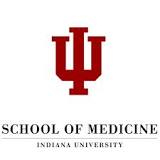Systemic Hypothermia in Acute Cervical Spinal Cord Injury
| Status: | Recruiting |
|---|---|
| Conditions: | Hospital, Hospital, Hospital |
| Therapuetic Areas: | Other |
| Healthy: | No |
| Age Range: | 18 - 70 |
| Updated: | 3/9/2019 |
| Start Date: | August 4, 2017 |
| End Date: | March 2020 |
| Contact: | George Jimsheleishvili, MD |
| Email: | gxj150@miami.edu |
| Phone: | 305-243-4781 |
Systemic Hypothermia in Acute Cervical Spinal Cord Injury - A Prospective, Multi-center Case Controlled Study
This study is a prospective multi-center trial designed to determine the safety profile and
efficacy of modest (33ºC) intravascular hypothermia following acute cervical (C1 to C8)
Spinal Cord Injury (SCI).
efficacy of modest (33ºC) intravascular hypothermia following acute cervical (C1 to C8)
Spinal Cord Injury (SCI).
The purpose of the proposed clinical trial is to demonstrate the safety and efficacy of
intravascular hypothermia as part of the early hospital management and treatment for acute
cervical SCI. Each year in the US, there are over 11,000 new cases of para- and quadriplegia
and 100,000 new cases of partial but permanent neurological losses due to acute SCI. Thus the
potential for clinical hypothermia following SCI to improve neurological outcome has
significant value. Many patients suffering SCI become permanently dependent on caretakers and
become a financial liability to both the family and society. Hypothermia has the potential to
improve outcome so that more patients suffering SCI can regain independent motor and sensory
function and remain economically productive members of society. The use of modest hypothermia
through intravascular cooling may ultimately lead to better care of the patient with acute
SCI and may also have more widespread uses in patients presenting with stroke or cardiac
arrest. In the long-term, this research may lend support to the use of hypothermia that could
in turn save money for the patients, hospitals, the government and society as a whole.
intravascular hypothermia as part of the early hospital management and treatment for acute
cervical SCI. Each year in the US, there are over 11,000 new cases of para- and quadriplegia
and 100,000 new cases of partial but permanent neurological losses due to acute SCI. Thus the
potential for clinical hypothermia following SCI to improve neurological outcome has
significant value. Many patients suffering SCI become permanently dependent on caretakers and
become a financial liability to both the family and society. Hypothermia has the potential to
improve outcome so that more patients suffering SCI can regain independent motor and sensory
function and remain economically productive members of society. The use of modest hypothermia
through intravascular cooling may ultimately lead to better care of the patient with acute
SCI and may also have more widespread uses in patients presenting with stroke or cardiac
arrest. In the long-term, this research may lend support to the use of hypothermia that could
in turn save money for the patients, hospitals, the government and society as a whole.
Inclusion Criteria:
- 18 - 70 years of age
- AIS Grade A - C
- Glasgow Coma Scale ≥14
- Able to start hypothermia treatment within 24 hours of injury
- Non-penetrating injury. Patients urgently taken to the operating room for surgical
reduction may also be included.
Exclusion Criteria:
- Age > 70 years
- AIS Grade D
- Hyperthermia on admission (>38.5ºC)
- Severe systemic injury
- Severe bleeding
- Pregnancy
- Coagulopathy
- Thrombocytopenia
- Known prior severe cardiac history
- Blood dyscrasia
- Pancreatitis
- Reynaud's syndrome
- Cord transection
We found this trial at
4
sites
Emory University School of Medicine Emory University School of Medicine has 2,359 full- and part-time...
Click here to add this to my saved trials
Click here to add this to my saved trials
340 W 10th St #6200
Indianapolis, Indiana 46202
Indianapolis, Indiana 46202
(317) 274-3772

Principal Investigator: Richard Rodgers, MD
Indiana University School of Medicine With more than 2,000 students in 2013, the Indiana University...
Click here to add this to my saved trials
Thomas Jefferson University We are dedicated to the health sciences and committed to educating professionals,...
Click here to add this to my saved trials

